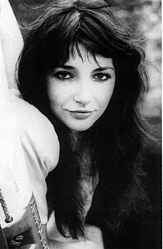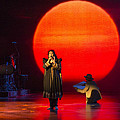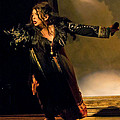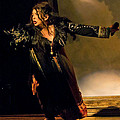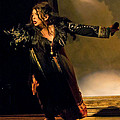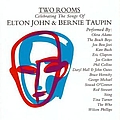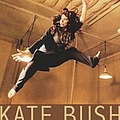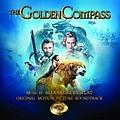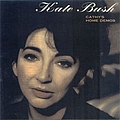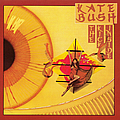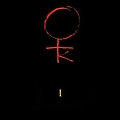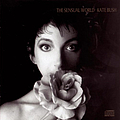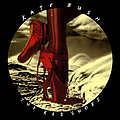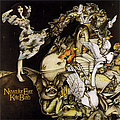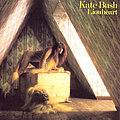Kate Bush (born Catherine Bush on 30 July 1958 in Bexleyheath, Kent, now part of Greater London) is an English singer-songwriter known for her expressive three-octave voice, idiosyncratic and literary lyrics, and eclectic and meticulous musical and production style. She debuted in 1978 with the surprise hit "Wuthering Heights", which was number one in the British music charts for four weeks. She has become one of the most influential artists in popular music. Whilst learning the violin and piano at St. Joseph's Convent Grammar, she caught the ear of Pink Floyd's David Gilmour who funded some demos, ultimately leading to a deal with EMI (Pink Floyd's ultimate record company through the progressive Harvest imprint) when she was sixteen. Over the next two years EMI allowed her — either to allow her to hone her talents or so she wouldn't be offered a contract by another record company — to finish school without releasing any material. Bush's first releases were in 1978 when she released the single Wuthering Heights (which went to number 1 in the UK, a first for a female singer/songwriter) followed by the album The Kick Inside. Even from her earliest works, featuring piano as a primary instrument, Bush wove together many diverse influences, melding classical music, rock, and a wide range of ethnic and folk sources, producing a unique amalgam which has continued throughout her career. Later recordings have moved farther from a rock base, however, notably with the release of The Dreaming in 1982, where she experimented heavily with the then-new technology of sampling. More than one reviewer has used the term "surreal" to describe much of her music, for many of the songs have a melodramatic emotional and musical surrealism that defies easy categorization. It has been observed that even the more joyous pieces are often tinged with traces of melancholy, and even the most sorrowful have elements of a unique vitality struggling against all that would oppress it. Her unapologetic use of her voice as an instrument conveying a broad range of emotional intensity and subtlety has characterized nearly all of her work. Kate Bush has tackled sensitive and taboo subjects long before it had become fashionable to do so; "Kashka From Baghdad" is a song about a gay male couple; "Breathing" explores the results of nuclear fallout. Her lyrics are often literate and reference a wide array of subject matter, some of which is relatively obscure, such as Wilhelm Reich in "Cloudbusting", or G.I. Gurdjieff in "Them Heavy People". The lush arrangements, complex production and intelligent, thoughtful lyrics found in her work can sometimes mask the fact that Kate Bush is a peculiarly witty writer and that comedy is not only a big influence on her — she has cited Monty Python, Woody Allen, Fawlty Towers and The Young Ones as particular favourites — but also a significant component of her work. In addition to her British peers, Bush has reportedly cited American musicians Frank Zappa and Devo as musical influences, both of who's work are heavily influenced by humor. As a vocalist, she has also provided backing vocals or duets with Peter Gabriel, Roy Harper, Big Country and others. She is often cited as an influence on later artists, most especially female singers such as Jane Siberry, Happy Rhodes and Tori Amos as well as others. Kate Bush has collected two Ivor Novello awards — in 1979 'Outstanding British Lyric' for "The Man With the Child in His Eyes" and 'Outstanding Contribution To British Music As A Songwriter' in 2002. In 1987 she scooped 'Best British Female Artist' at the Brit Awards. In 2001, Kate won Q Magazine's 'Classic Songwriter' award, revealing an unlikely fan in John Lydon who announced, in his acceptance speech for the 'Inspirational Artist Award,' "I'd like to say hello to Kate Bush, thank you, your music is f****ng brilliant". Kate's song "Running Up That Hill", from the 1985 album Hounds of Love, has been covered by Placebo on a number of dates during their 2006 tour. The Futureheads, released a version of Kate's "Hounds of Love" as a single, which did rather well.
